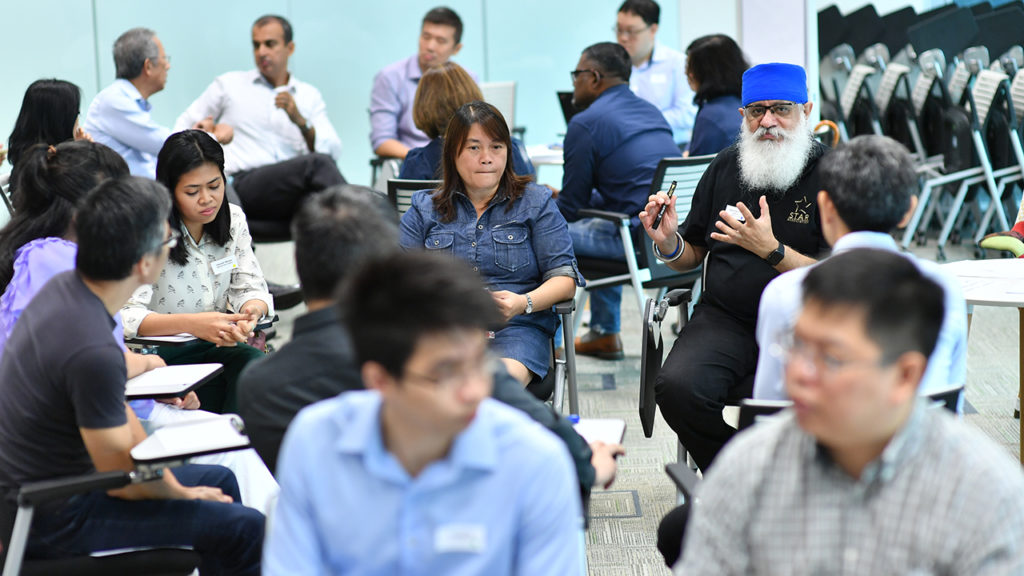Rain, rain go away. Come again another day, little children want to play.
A familiar nursery rhyme which some freelance coaches can relate to when faced with bad weather disrupting their outdoor sports gigs and consequently, their payments. But surely, you don’t expect to get paid for work not done. Sounds logical? Not really.
Freelancers often commit their time for their clients often at the opportunity cost of other work. For instance, badminton coach Danny blocks timeslots in his schedule for coaching contracts, sometimes up to one year in advance. But since the contracts are commonly based on the estimated number of coaching hours, coaches face the risk of buyers cancelling the sessions at short notice and at no penalty. “I sign a year-long contract for $12,000, but I may earn less.” Freelancers commit their time upfront, travel to the venue but end up with the short end of the stick when their clients cancel on them at the last minute.
In our dialogues with freelancers, many also shared that assignments are often taken up through verbal agreement and written contracts are not the norm. Consequently, some buyers renege on their agreement and some freelancers react by accepting that cancellations are a cost of doing business, or factoring costs incurred from possible cancellations into their bid price; others get frustrated with such unfair treatment and may choose to leave the industry. A loss of good talent and a lack of fairness cannot be good for the industry.
Danny also laments the current lack of workplace safety insurance that caters for freelancers. Coaches cannot afford to fall ill or get injured, as this would mean an immediate halt to their income. “It would be good if we could also have affordable insurance for sports coaches,” Danny says. Freelancers also worry about meeting their retirement and medical needs, as they do not enjoy the same CPF and Medisave provisions as salaried employees.
All hands on deck

Clearly, change is needed, and all the stakeholders – freelancers, service buyers, intermediaries, government agencies must take collective ownership. The desired outcome? Better services for buyers, and fairness for freelancers. What may move the needle? One suggestion would be for the government agency overseeing the sector to take the lead. A case in point is how the Land Transport Authority leads in mediating disputes between taxi operators and taxi drivers. This provides a fabulous impetus to ensure greater clarity and best practice for all parties involved.
In fact, some buyers are ready to spell out in their contracts clearer terms on deliverables, payment and cancellation policy, workplace insurance, and even make Medisave contributions. For instance, the Infocomm Media Development Authority’s (IMDA) tripartite standard further protects media freelancers by setting a best practice that companies can adopt, covering clear contracts, timely payment, support for dispute resolution, and insurance for commercial liability and work-related accidents. Held jointly with the National Trades Union Congress (NTUC), the Ministry of Finance (MOF) also educates public procurement officers on fair and responsible buying and demystifies the government procurement process for freelancers.
These practices can help address some of the concerns of freelancers that the MOM uncovered through their survey conducted last August. Recently, the tripartite partners also conducted focus group discussions with various freelancing communities and most were similarly concerned with collecting full payment after the completion of an assignment; having sufficient and sustainable streams of work; and building up adequate financial reserves to meet the mid-and-long term needs of housing, medical and retirement. We are midway through these discussions to find out the cause of these problems and to collectively develop workable solutions.
So, what drives industry stakeholders to initiate change? Likely a recognition that freelancing needs to remain viable. This new form of employment is also catching on fast. If freelancing remains a risky option, over time there will be fewer new entrants. Not only will freelancers be hard pressed to find fellow freelancers to be collaborators, buyers will have fewer options too.
Growing freelance communities from within
It is no surprise then that, when we organise workshops and clinics, more established freelancers willingly invest time to mentor newer entrants or stepping up to serve. Entertainment industry veteran Laurence Wong shares that he and a few others founded the Singapore Talent, Artistes and Resources Association because they saw how greenhorns were unwittingly undercharging and companies were taking advantage of this; while seasoned freelancers grew increasingly frustrated at being undercut. “Those of us who have made our living in the industry should mentor the younger ones. If they are not properly guided, they may not see how freelancing work can help them make an income, and new blood may be deterred from joining”.
Laurence observes that mindsets are changing and more are coming forward to mentor as they realise that grooming the next generation uplifts everyone’s livelihoods. Their efforts seem to be paying off. “We see that younger talents coming in are charging correctly and are more savvy about their rights”.
Ng Swee San, screenwriter and President of the Screenwriters Association Singapore, also conducts writing classes for the screenwriting community, where she teaches not just story structure and character development, but also shares best industry practices and how she negotiates contracts. She walks the talk for continuous learning and regularly goes for classes herself. “I think you can never stop learning, your knowledge is never complete. Even famous screenwriters like Quentin Tarantino go for classes to revisit their basics”. For freelancers who don’t invest in upgrading, she quips: “There are so many opportunities for learning, so many online classes which give access to experts in the industry – there is no excuse.”
Improvements on the horizon?
Despite the challenges, it is clear that passion is a driving force that keeps many freelancers going. Danny shares that for him, “it is about working with kids, to build character and instill values. And doing something that you like and can make a living from”. Danny also works with other like-minded coaches at the Sports Coaches Association of Singapore to tackle the issues that coaches face, and promote the professionalism of sports coaching.
Thankfully, things are looking up. The Ministry of Education, NTUC and representatives from the coaching and instructor communities came together to identify concerns and made recommendations to ensure that a revised contract will include a commitment to utilise and pay for a minimum number of training hours and offer greater clarity on cancellation, among others.
Dreading rainy days? Perhaps not anymore.
Recommendations from the focus group discussions and the tripartite workgroup will be consolidated soon and submitted to the government to consider. Coaches will then be able to focus on using rainy days to refine their plan for the next training, roll out classroom-based training or to source for the next masterclass they should attend.
This is a post by National Trades Union Congress (NTUC) Assistant Director-General Ang Hin Kee. Any extracts should be attributed back to the author. 29 Dec 2017.
*Main photo by Bespoke Foundry

